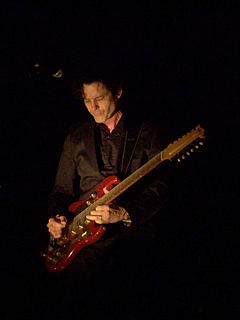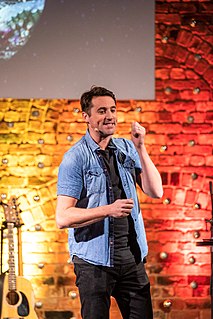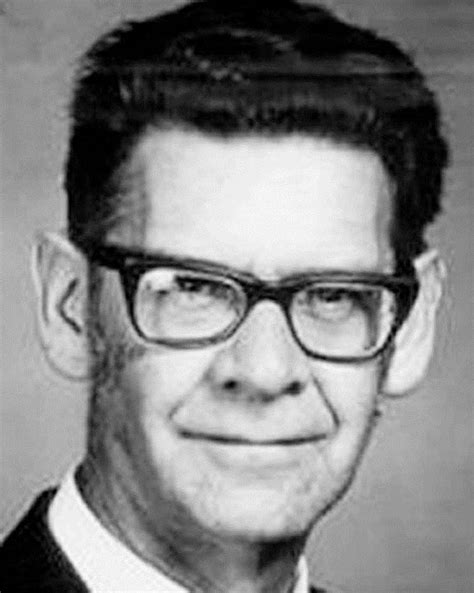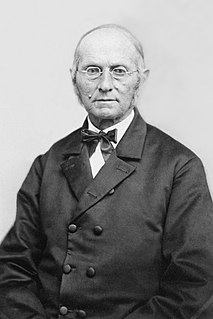A Quote by Mark Hart
Our Sabbath practices reveal which Trinity we truly worship: Father, Son, and Spirit... or me, myself, and I.
Related Quotes
The heavenly Father Whom we worship is the Father of the Truth, namely, of the only-begotten Son, and has the Spirit of Truth, the Holy Spirit, and those who worship Him in these Two do so because they believe in these Persons and act through Them. For the Apostle tells us that it is through the Spirit that we worship and pray (cf. Rom. 8:26), and God's only-begotten Son says, 'No man cometh unto the Father, but by Me' (John 14:6).
This worship, given therefore to the Trinity of the Father and of the Son and of the Holy Spirit, above all accompanies and permeates the celebration of the Eucharistic liturgy. But it must fill our churches also outside the timetable of Masses. Indeed, since the Eucharistic mystery was instituted out of love, and makes Christ sacramentally present, it is worthy of thanksgiving and worship. And this worship must be prominent in all our encounters with the Blessed Sacrament, both when we visit our churches and when the sacred species are taken to the sick and administered to them
Her [Mary's] motherhood extends beyond view. In the will of the Son, she becomes at once mother and maid: sheltering him, but sheltered in him, forming him, but formed by him ... When she pronounces the words: 'Be it done to me according to thy word', the Mother conceives the mystery from the Trinity, in order to give it to the Son. The Son gives the word back to the Trinity by giving everything he has back to the Father in the Spirit. Then, after the Father has received it again, it is distributed to mankind by means of that extravagant expansioning-the Eucharist and the Holy Spirit.
... the Apostle Paul says that we are sealed in the Spirit (cf. Eph. 1:13); since we have in the Son the image of the Father, and in the Spirit the seal of the Son. Let us, then, sealed by this Trinity, take more diligent heed, lest either levity of character or the deceit of any unfaithfulness unseal the pledge which we have received in our hearts.
Mission [is] understood as being derived from the very nature of God. It [is] thus put in the context of the Trinity, not of ecclesiology or soteriology. The classical doctrine of the missio dei as God the Father sending the Son, and God the Father and the Son sending the Spirit [is] expanded to include yet another “movement”: Father, Son, and Holy Spirit sending the church into the world.
Now there have been delivered to us in the Gospel three Persons and names through whom the generation or birth of believers takes place, and he who is begotten by this Trinity is equally begotten of the Father, and of the Son, and of the Holy Ghost —for thus does the Gospel speak of the Spirit, that “that which is born of Spirit is spirit,” and it is “in Christ “that Paul begets, and the Father is the “Father of all”.
We worship unity in trinity, and trinity in unity; neither confounding the person nor dividing the substance. There is one person of the Father, another of the Son, and another of the Holy Ghost; but the Godhead of the Father, and of the Son, and of the Holy Ghost, is all one; the glory equal, the majesty co-eternal.
Keep always in mind the rule of faith which I profess and by which I bear witness that the Father and the Son and the Spirit are inseparable from each other, and then you will understand what is meant by it. Observe now that I say the Father is other [distinct], the Son is other, and the Spirit is other. This statement is wrongly understood by every uneducated or perversely disposed individual, as if it meant diversity and implied by that diversity a separation of Father, Son, and Holy Spirit
We find upon all occasions, the early Christian writers speak of the Father as superior to the Son, and in general they give him the title of God , as distinguished from the Son; and sometimes they expressly call him, exclusively of the Son, the only true God ; a phraseology which does not at all accord with the idea of the perfect equality of all the persons in the Trinity. But it might well be expected, that the advances to the present doctrine of the Trinity should be gradual and slow. It was, indeed, some centuries before it was completely formed.
Arabia was idolatrous when, six centuries after Jesus, Muhammad introduced the worship of the God of Abraham, of Ishmael, of Moses, and Jesus. The Ariyans and some other sects had disturbed the tranquility of the east by agitating the question of the nature of the Father, the son, and the Holy Ghost. Muhammad declared that there was none but one God who had no father, no son and that the trinity imported the idea of idolatry.

































